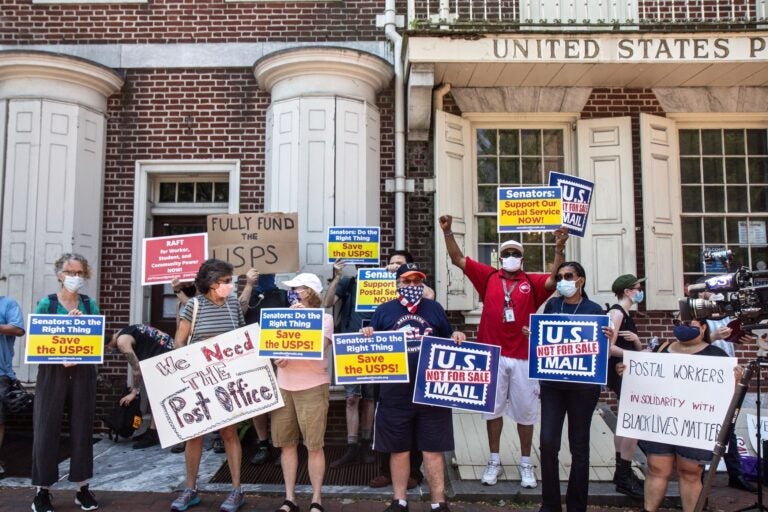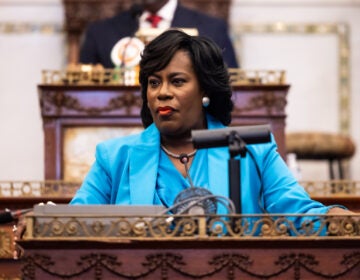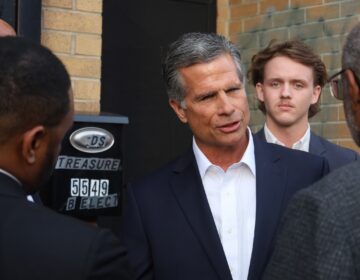Philadelphia’s big mail problem
Some people in Philadelphia haven’t had their mail delivered in three weeks. What's going on — and what could it mean for mail-in ballots in November?
Listen 13:45
Members of the American Postal Workers union local 89 protest in Old City on June 22, 2020, demanding the postal service be fully funded. (Kimberly Paynter/WHYY)
Some Philly neighborhoods haven’t gotten mail delivered in three weeks, leaving some residents scrambling for their medications and paychecks. Democratic lawmakers are now raising the alarm. One big concern? That the U.S. Postal Service won’t be able to handle a surge of mail-in ballots for November’s presidential election.
Philadelphia Inquirer reporters Ellie Rushing and Jonathan Lai explain the reasons behind the mail delays and why lawmakers are right to be concerned about the potential impact on the election.
Interview highlights
Ellie Rushing on the reasons behind Philly’s mail delays
Coronavirus is definitely having an impact, but the crucial thing that’s exacerbating all these problems is extreme policy changes that are coming from Washington. The new postmaster general, Louis DeJoy, who was appointed by President Trump in June (he’s actually a Trump donor with no postal experience) has ordered extreme changes to the way the postal workers are operating. He’s actually telling workers to leave mail behind if it’s not ready for them by the time they need to start their shift, which is something that they have never been told to do ever in the history of working there. And what carriers are saying is that they feel like they’re being forced to abandon some of the most sacred tenants of their jobs.
These changes are coming on top of huge booms in online delivery and parcel increases that the Postal Service is unable to manage. The union president that I spoke with said that before the coronavirus, they were processing 30,000 parcels and packages a day. Now they’re processing 100,000 parcels a day. The carriers say that they can’t even fit all the letters that they need to carry and all the packages that they need to deliver into their bags, that their trucks are just filled with huge items that they typically aren’t having to deliver and they just can’t fit it all in. And that’s why on top of being told to to leave mail behind, they physically can’t even fit it into their trucks and bags.
Jonathan Lai on how USPS changes come as Trump attacks mail-in voting
It’s not actually the only thing about the election system that he has attacked in recent days. Last week, he went so far as for the first time publicly suggesting that perhaps the election should be delayed — which we should note he does not have the power to do on his own; it requires an act of Congress. However, it does come after several weeks and months of him taking on this idea that mail-in voting is somehow fraudulent. There is no evidence that that’s true. Voting by mail has been a very normal part of elections. What I do know is this regardless of the intent, Democrats and Republicans are voting by mail and voting in person at different rates. What we saw in Pennsylvania and in states all across the country is that Democrats were a lot more willing to vote by mail in the recent primaries than Republicans were.
On how the impact this could have in November
I think this is a really challenging election to pull off during a pandemic. I am very concerned about the mail delivery and how that affects people’s votes, people’s ability to vote, as well as their willingness to participate in the system. I’m not sure what’s going to happen, but I think there are a lot of people who recognize that this is a problem both in Congress and in the state Legislature. And we’ll have to see what happens.
WHYY is your source for fact-based, in-depth journalism and information. As a nonprofit organization, we rely on financial support from readers like you. Please give today.






